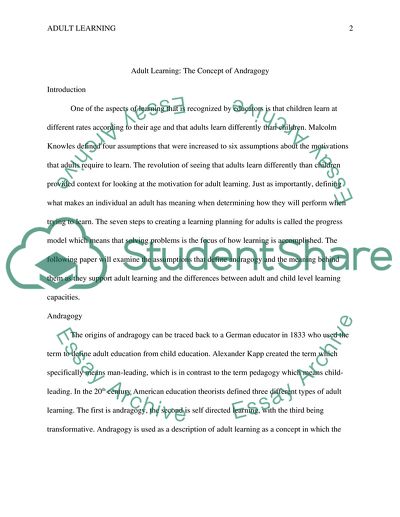Cite this document
(“Andragogy Research Paper Example | Topics and Well Written Essays - 1500 words - 1”, n.d.)
Andragogy Research Paper Example | Topics and Well Written Essays - 1500 words - 1. Retrieved from https://studentshare.org/education/1609990-andragogy
Andragogy Research Paper Example | Topics and Well Written Essays - 1500 words - 1. Retrieved from https://studentshare.org/education/1609990-andragogy
(Andragogy Research Paper Example | Topics and Well Written Essays - 1500 Words - 1)
Andragogy Research Paper Example | Topics and Well Written Essays - 1500 Words - 1. https://studentshare.org/education/1609990-andragogy.
Andragogy Research Paper Example | Topics and Well Written Essays - 1500 Words - 1. https://studentshare.org/education/1609990-andragogy.
“Andragogy Research Paper Example | Topics and Well Written Essays - 1500 Words - 1”, n.d. https://studentshare.org/education/1609990-andragogy.


